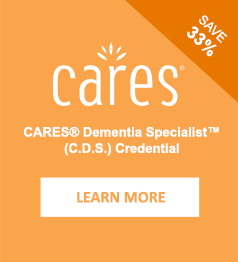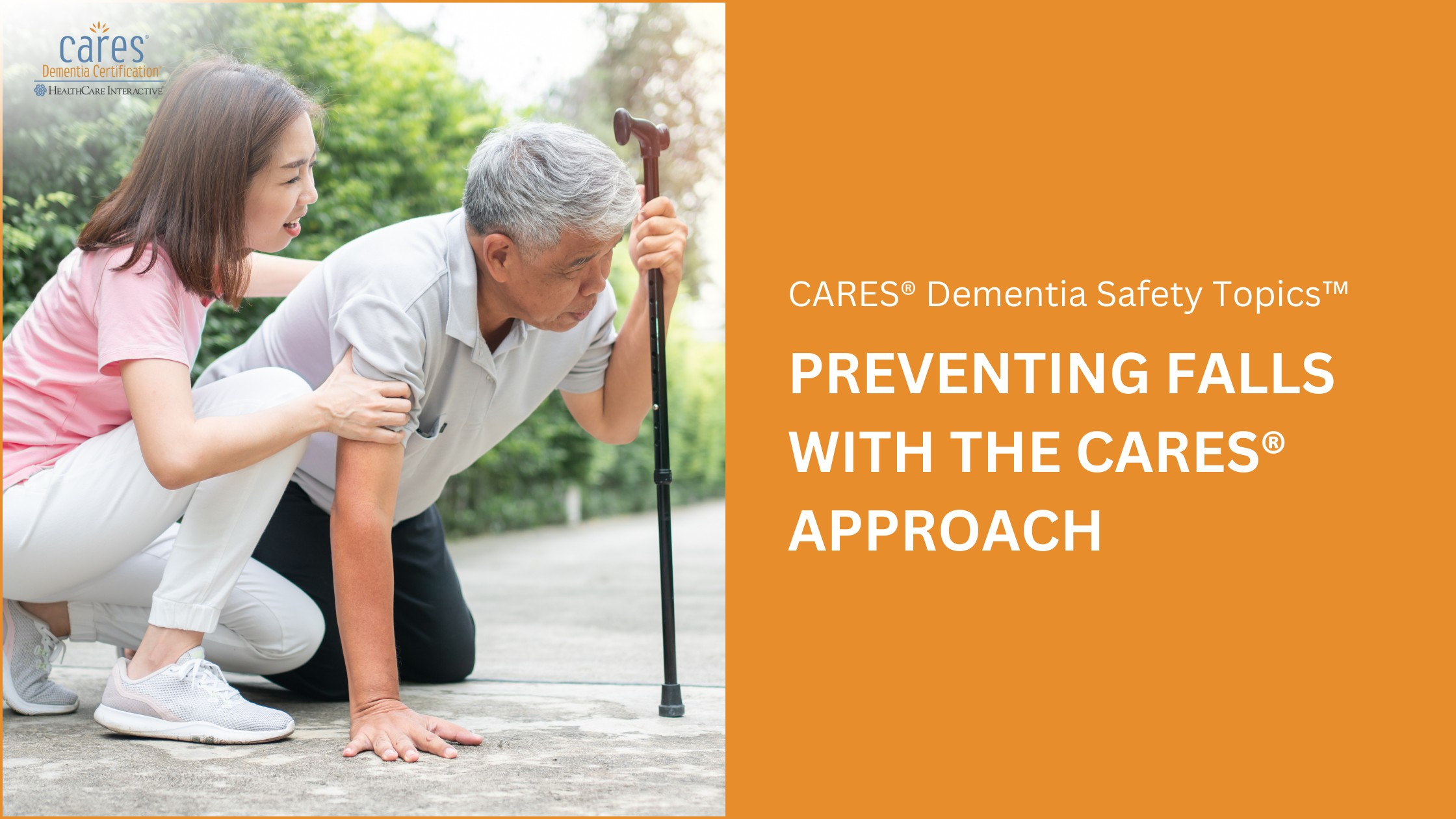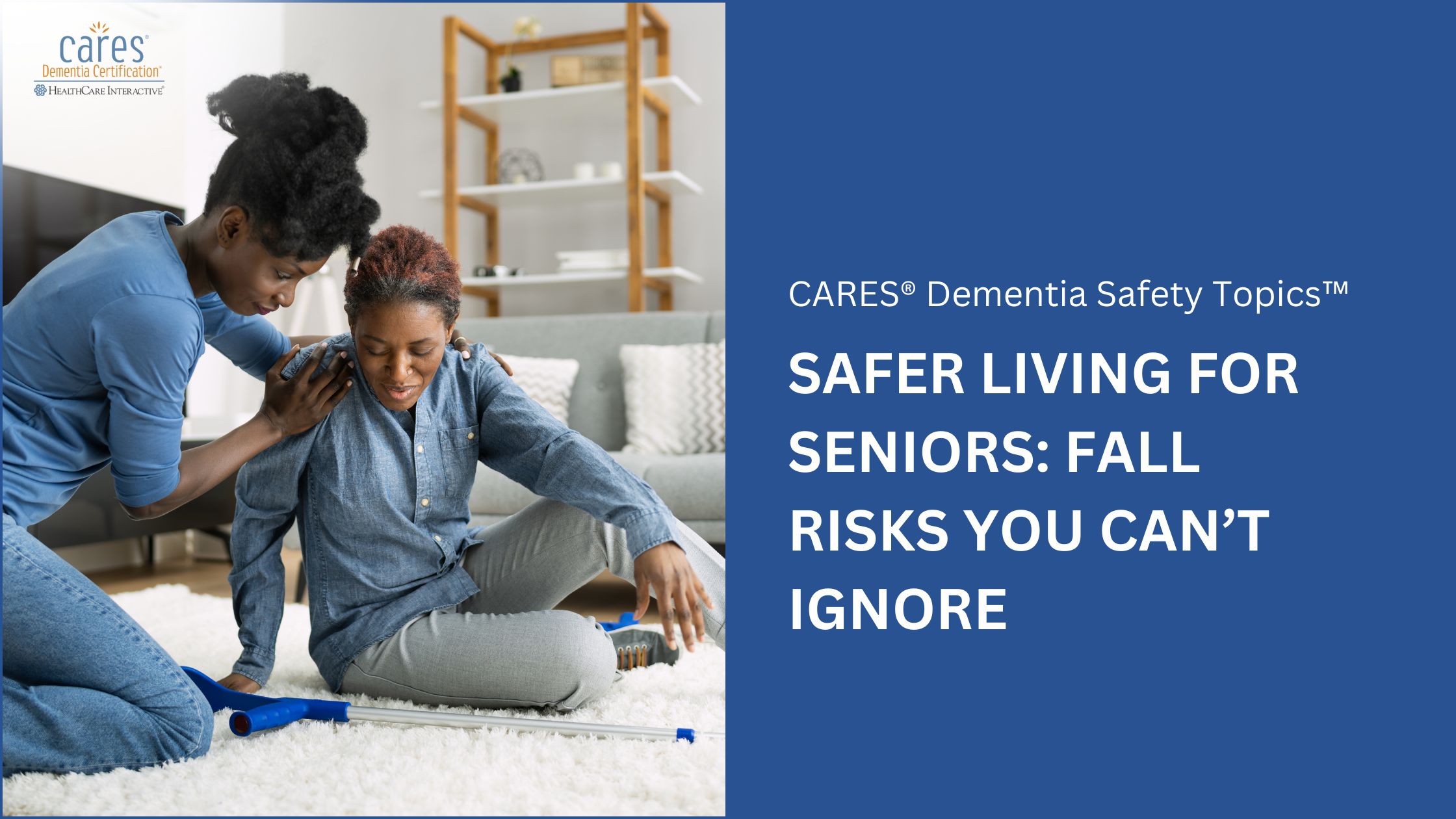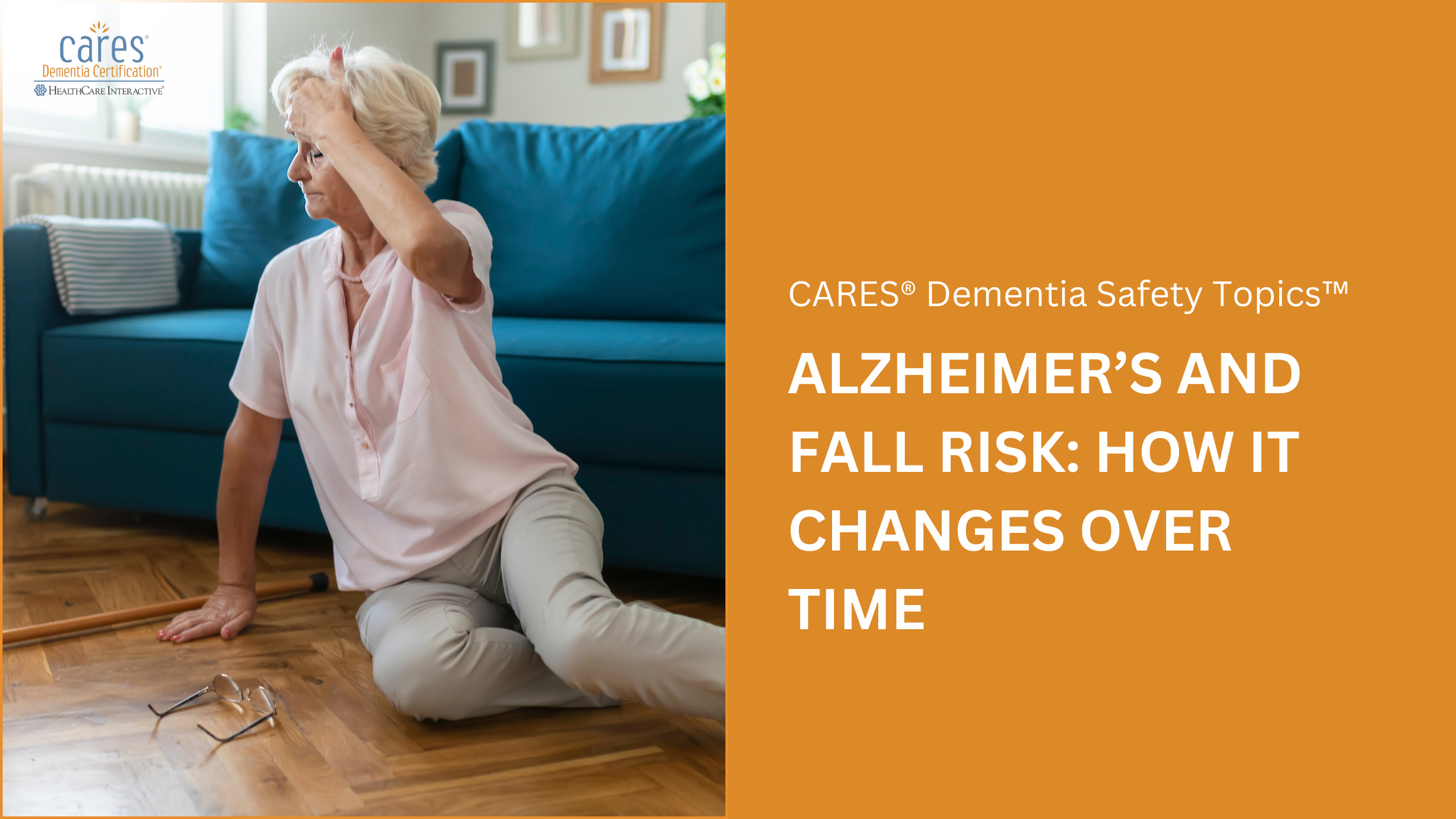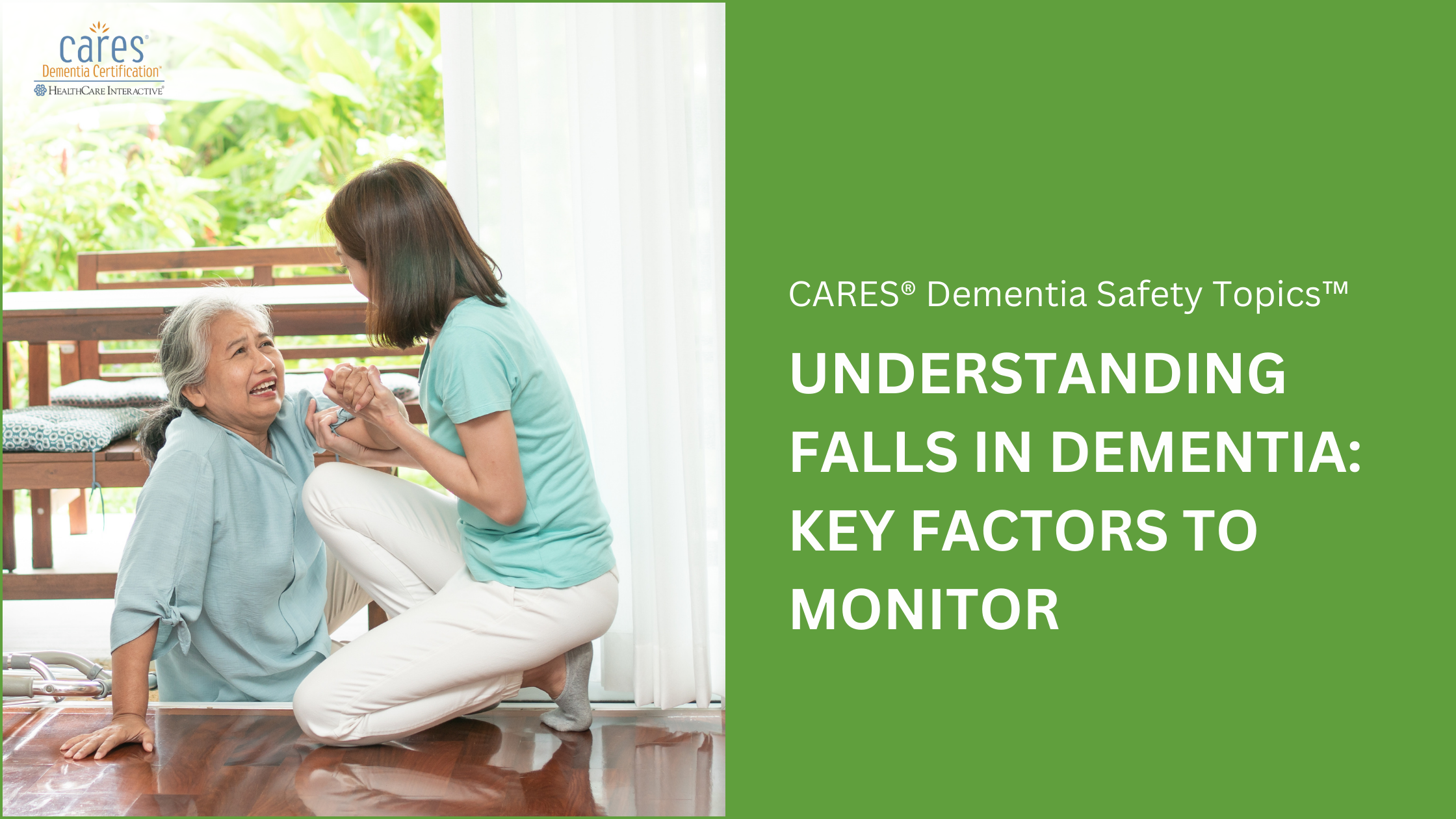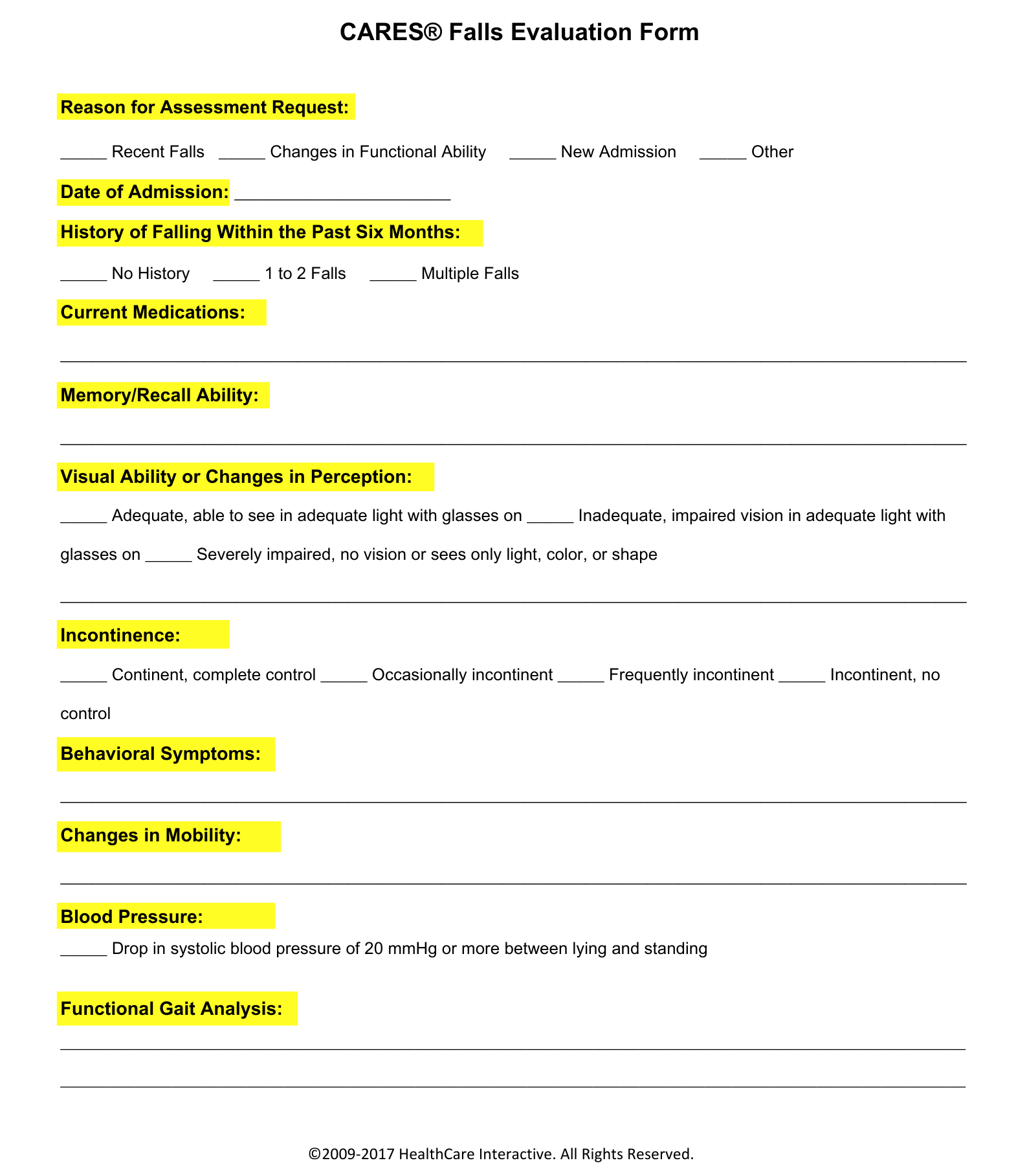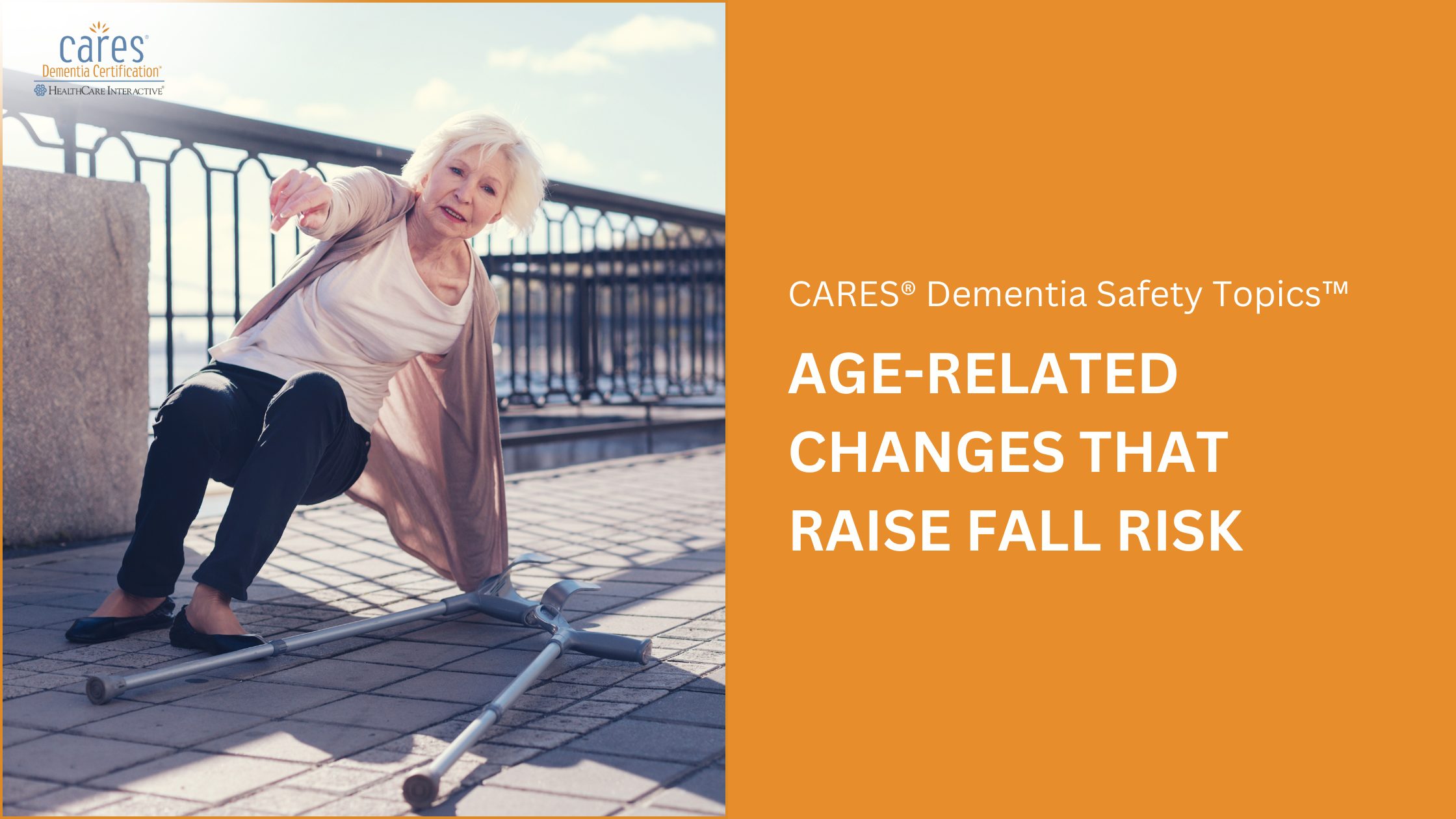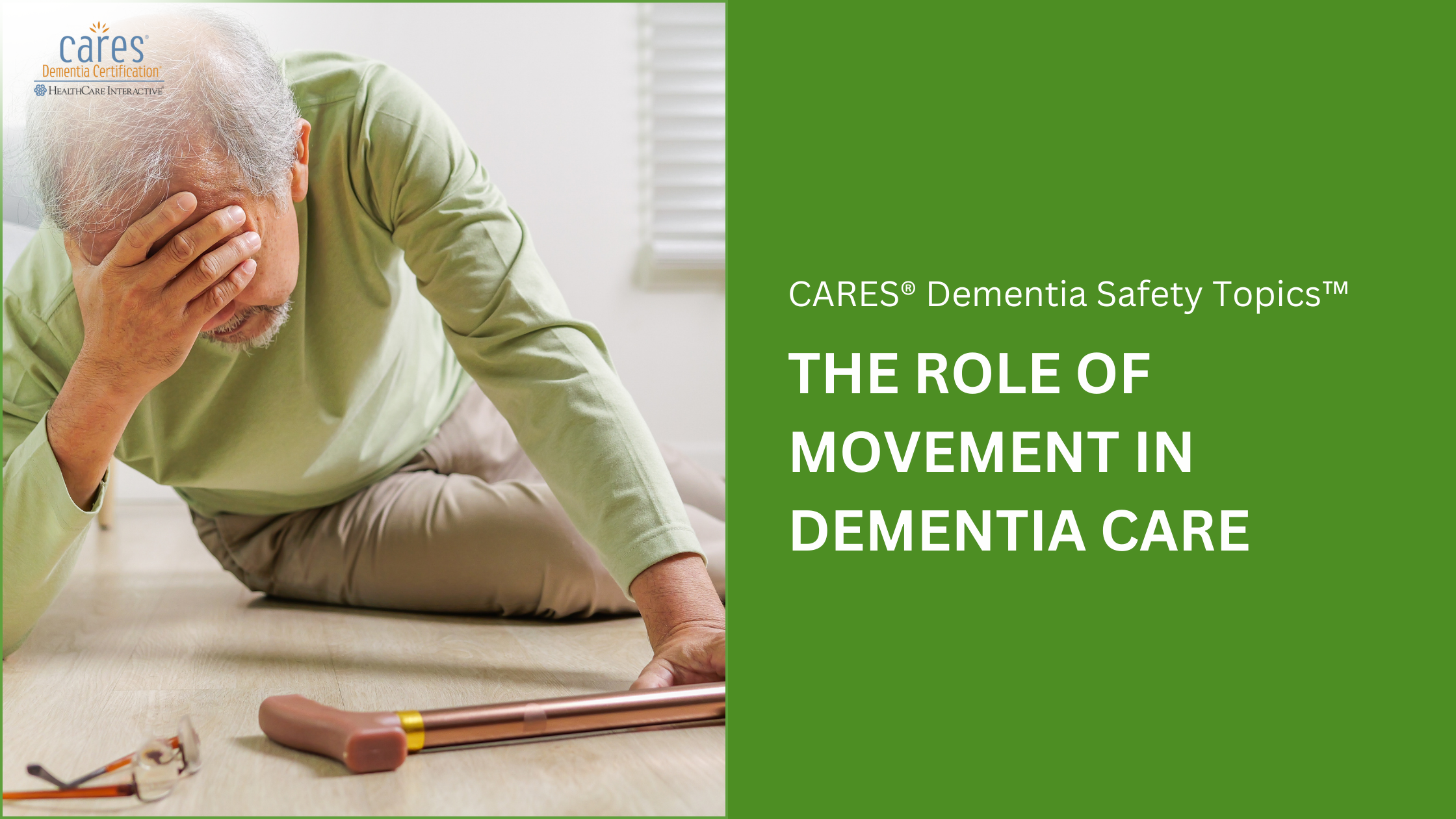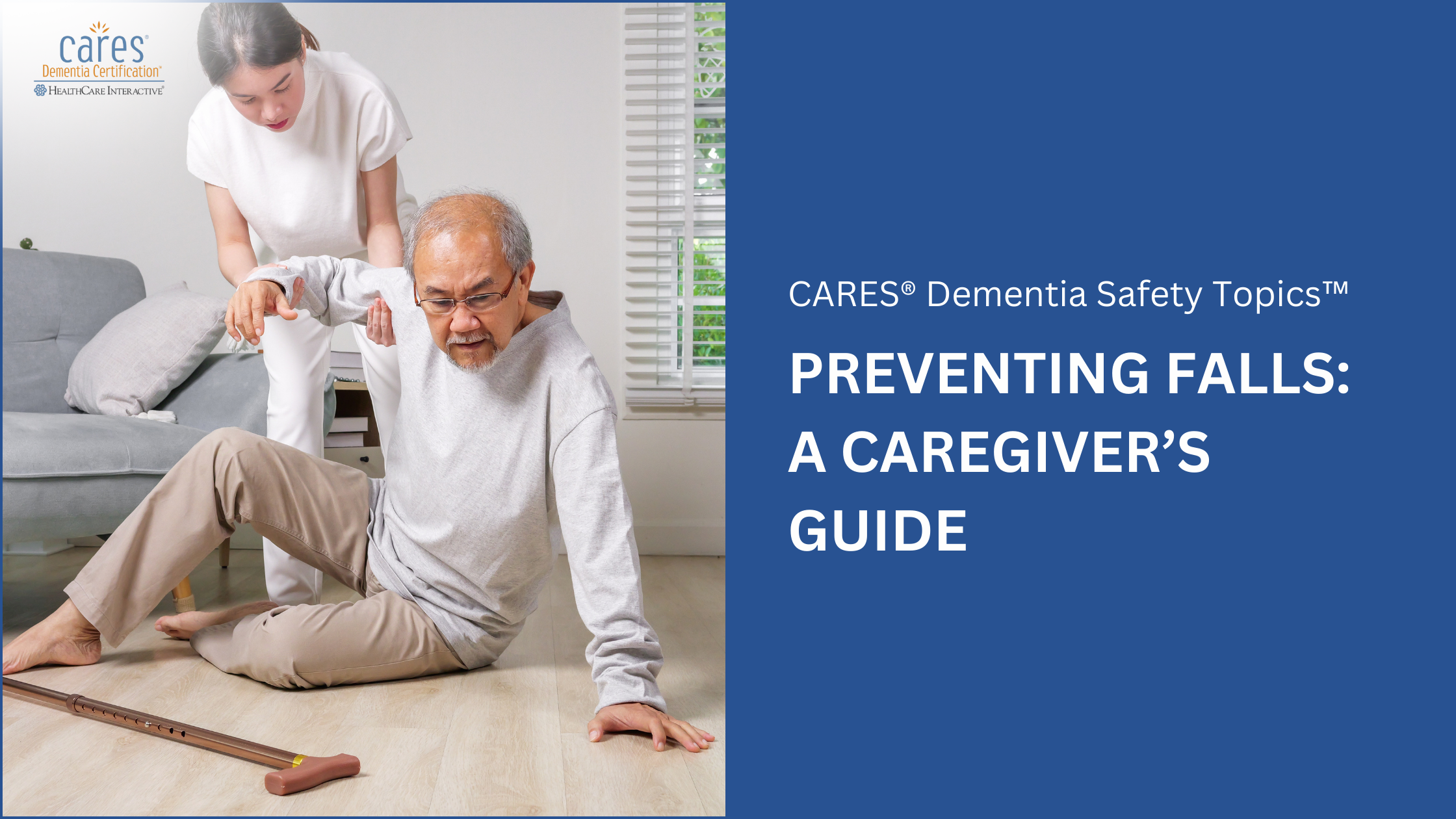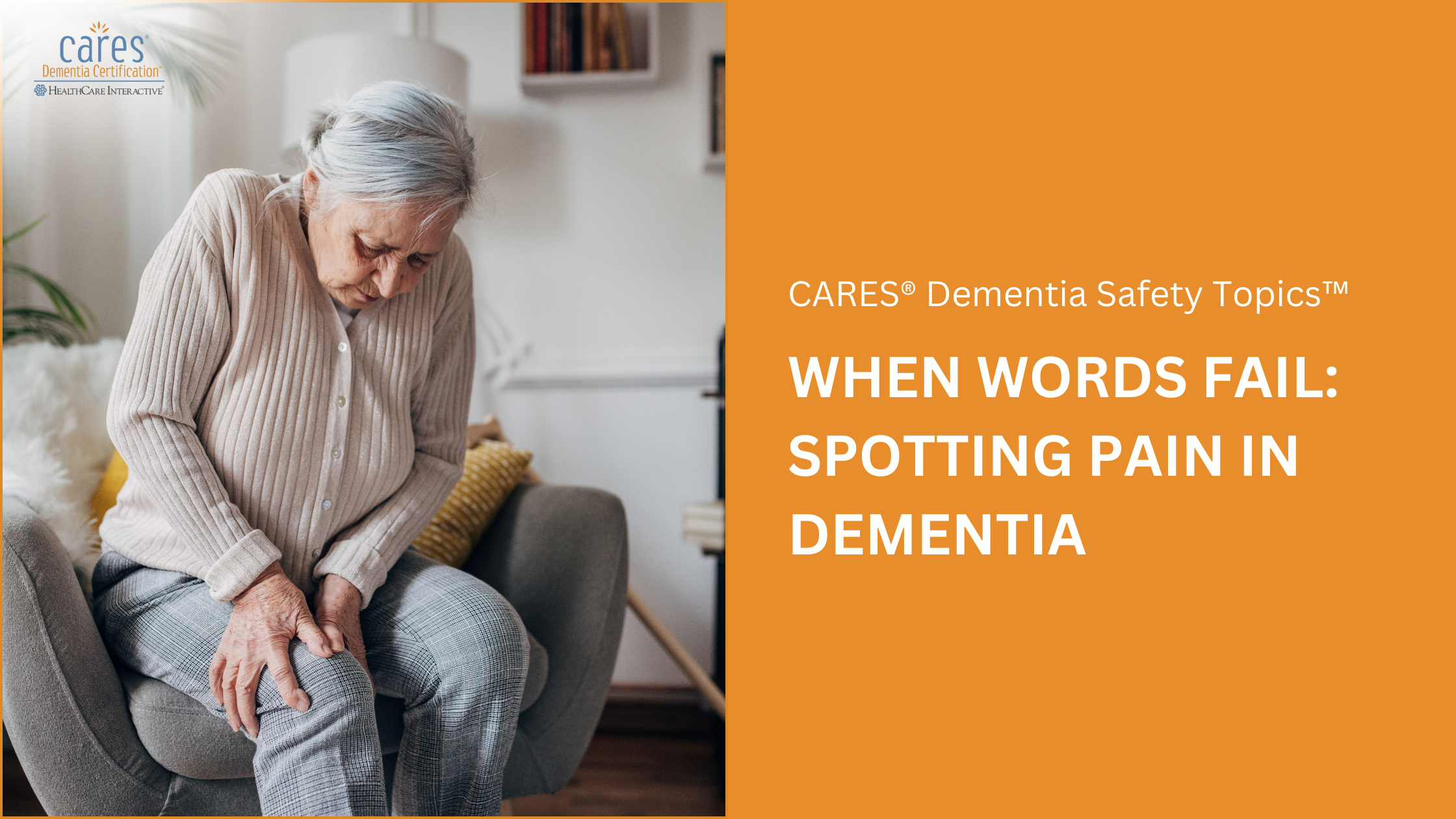The risk of falling is one of the greatest concerns for older adults, especially those living with dementia. A fall can lead to serious injury, loss of independence, and fear of moving around—making everyday life even more challenging. But here’s the good news: caregivers can play a powerful role in reducing these risks. The CARES® Approach, a widely used framework in dementia care, offers simple, practical steps that make fall prevention more effective and compassionate. By focusing on connection, observation, and collaboration, this approach helps caregivers keep their loved ones safe while respecting their dignity.
Let’s explore how each step of the CARES® Approach can help prevent falls in people living with dementia.
C – Connect with the Person
The first step, Connect with the Person, is all about building trust and understanding. Taking time to connect helps you recognize a person’s needs and moods more easily. It also makes it smoother to step in and prevent a fall when you notice an unsafe situation. Connection is the foundation of safety.
A – Assess Behavior
The second step, Assess Behavior, means closely watching and learning from the person’s actions. Look for patterns: When, where, and how do potential falls happen? Does someone often get unsteady after mealtimes? Do they try to stand up suddenly when there’s too much noise? By identifying these triggers, you can anticipate risks and create a safer environment.
R – Respond Appropriately
Next comes Respond Appropriately. Use what you’ve learned about each person’s habits and needs to act in the moment. For example, if you know someone tends to get restless at a certain time of day, you can stay nearby or offer support before a fall happens. Responding appropriately is about tailoring your care to each individual.
If a person with dementia is at risk for falling, ask your supervisor to have the person’s vision checked by an eye doctor at least once a year. Imagine how difficult it would be to walk up the stairs or through a busy dining area if your vision were blurry because your glasses are the wrong prescription. This is what people experience when their eyesight isn’t clear. As dementia gets worse, a person’s vision changes. Their field of vision may shrink, and they may have difficulty judging height and depth.
E – Evaluate What Works
The fourth step, Evaluate What Works, is about reflection. Ask yourself: What strategies are keeping this person steady? Which ones aren’t helping? By paying attention and adjusting your approach, you can find the most effective ways to reduce fall risks for each individual.
S – Share With Others
Finally, Share With Others closes the loop. Caregiving is a team effort, and sharing what you’ve learned with family, staff, or other caregivers ensures consistency in care. When everyone understands a person’s risks and what strategies work best, the chances of preventing falls increase dramatically.
Final Thoughts
The CARES® Approach isn’t just a checklist—it’s a way of thinking about care that keeps people living with dementia safe, supported, and respected. By connecting, observing, responding, evaluating, and sharing, caregivers can make a real difference in reducing falls and improving quality of life for people living with dementia.
Build fall-prevention skills with CARES® training—get 10% off with code LaborDaySavings. Offer ends Sept 30, 2025.
